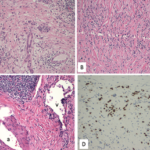Approximately 50% of young adult patients with childhood-onset rheumatic diseases become lost to follow-up within the first year of transferring to adult rheumatology care, mirroring the statistics of other subspecialties.1,2 One of the challenges cited most consistently by young adult patients and their families relates to differences between rheumatology care delivery in the pediatric and…








